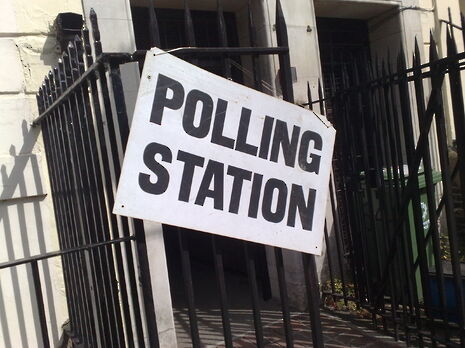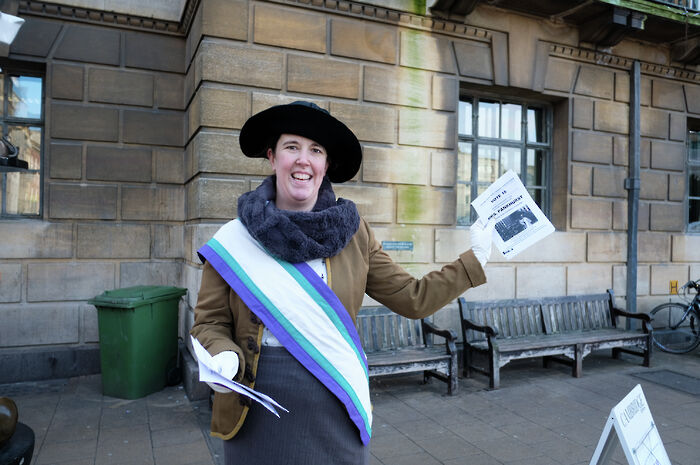The battle for suffrage is far from finished
Our reluctance to lower the voting age is fuelled by baseless fear and prejudice, argues Sam Willis

Last week was the centenary of some women winning the right to vote. Much of the commentary has focused on the unfinished nature of liberation, addressing the next steps for the furthering of women’s rights. Rather than repeat these commentators, I want to talk about another link between the Representation of the People Act 1918 and the present state of the franchise. That link is discrimination by age.
After 1918, men over 21 and women over 30 (with an additional property qualification) could vote. After 1928, this was equalised at the age of 21. This remained the case until 1969, when it was lowered. 18- to 21-year-olds – many of us here at university – would not have had the vote half a century ago. And yet, judging from the sound and fury generated by some, one would think that the age of 18 has some sort of special constitutional lineage. ‘Votes at 18’, they would have it, has a self-explanatory logic to it that ‘Votes at 16’ does not.
Young people are too reckless, too feckless, too ignorant to vote. I have phrased this harshly, but this is often the substance of the argument of those who resist ‘Votes at 16’. It was the substance of opposition to ‘Votes at 18’ – until it happened. There was a worry that younger voters were unsophisticated and politically ignorant. At its best, this would degrade the quality of politics; at its worst, it would shunt public opinion further in the direction of ‘collectivism’. Demagoguery and populism would have its day.
“They worried that young people were unsophisticated and politically ignorant”
The franchise has many roads not taken. One 1927 article in Home and Politics (a Conservative Party magazine for women) featured the curious proposal: ‘I would give all the wives of men a vote, with no votes for men under twenty-one and extra votes to men for every child under working age’. More seriously, in the 1920s senior Tories discussed the merits of levelling the male and female franchise at 25: the young mothers aged 25-30 were of less concern than those unready men and women aged 18-25. The condescension is perfectly realised in the short story series ‘Mrs Maggs and Betty’, in which Mrs Maggs, an older woman, tries to direct her feckless but well-meaning maid, Betty, away from socialism.
This was the fear. The Bolshevik Revolution of 1917 had impressed itself deeply into the nightmares of Britain’s political class and much of the general populace. But the nightmare never became a reality. This is the common theme of age-based franchise debates. There is a fever of intense speculation, anxiety, and then – well, nothing. 16- to 17-year-olds voted in the Scottish Independence Referendum. The sky did not fall. The polity is intact.
Yet despite the testimony of Scottish Tory leader Ruth Davidson, Theresa May assures us that 16- to 17-year-olds lack the ‘maturity and responsibility’ to vote. Instead, young people should ‘watch politics, pay attention to politics, get to think about their own views’. Young people should stand for ‘youth parliaments’ and become councillors. Voting, May says, is not the only way to be politically engaged.
We have seen these arguments before. Pre-1918, women were allowed to participate in politics – they worked in local government and formed pressure groups to influence male electors. The disenfranchised working class could participate – not by voting, mind, but by attending hustings. It is disingenuous at best to pat young people on the head and say ‘You have more power than you think! You can watch Newsnight’. Education, organisation, local government – these things are supplements to, not replacements for, the power of voting.
This point is particularly acute at a time of systematic discrimination against the young. There is the appalling age-based minimum wage – something which should outrage anyone who believes in the dignity of labour. Tuition fees have been rigged to shockingly high interest rates. Mental health services for the young have been shredded. A future of entrapment in the rent-game, whilst we languish in an asphyxiated house-market, awaits many of us. The state is not shy of intervening in the economy, but never in the interests of young people.
“Now is the perfect time to reassess our objections to young electors”
Citizenship is not a static category. The extent to which we participate in society gradually increases up to the age of 18. Why can’t voting fall under this? To those who worry what might follow ‘Votes at 16’, I ask you to remember those who were worried about working-class voters in 1885, about older women in 1918, about the ‘flapper vote’ in 1928, and 18- to 21-year-olds in 1969. This is one of the main virtues of an unwritten constitution: it is up to passing generations to negotiate for themselves how best to govern society. There is no need to second-guess our descendants.
Next year it will be 50 years since ‘Votes at 18’. Now is the perfect time to reassess our objections to young electors. What is it exactly that we are so worried about? What is it that we object to? Will we be proud of our arguments and rhetoric in 50 years’ time?
 News / Cambridge academics stand out in King’s 2026 Honours List2 January 2026
News / Cambridge academics stand out in King’s 2026 Honours List2 January 2026 Interviews / You don’t need to peak at Cambridge, says Robin Harding31 December 2025
Interviews / You don’t need to peak at Cambridge, says Robin Harding31 December 2025 Comment / What happened to men at Cambridge?31 December 2025
Comment / What happened to men at Cambridge?31 December 2025 Features / “It’s a momentary expression of rage”: reforming democracy from Cambridge4 January 2026
Features / “It’s a momentary expression of rage”: reforming democracy from Cambridge4 January 2026 News / Varsity’s biggest stories of 202531 December 2025
News / Varsity’s biggest stories of 202531 December 2025










